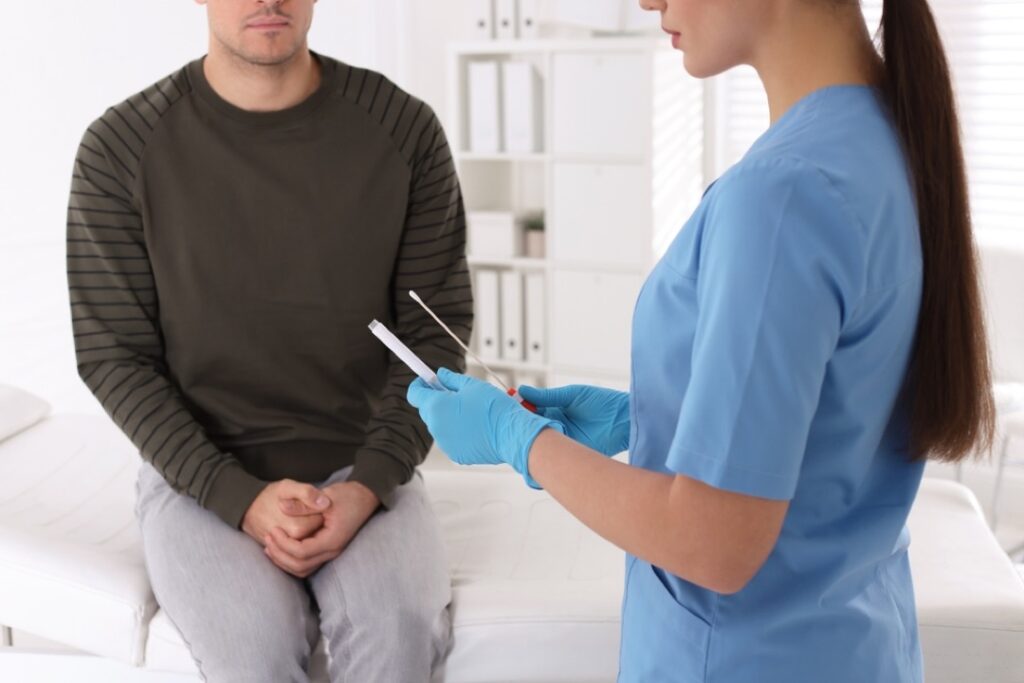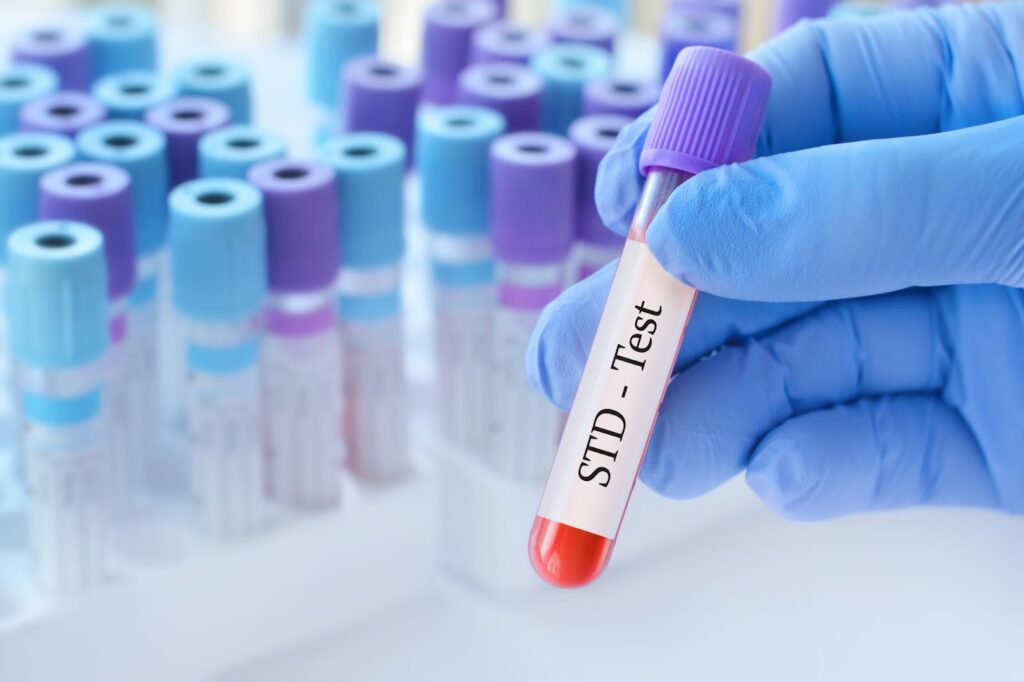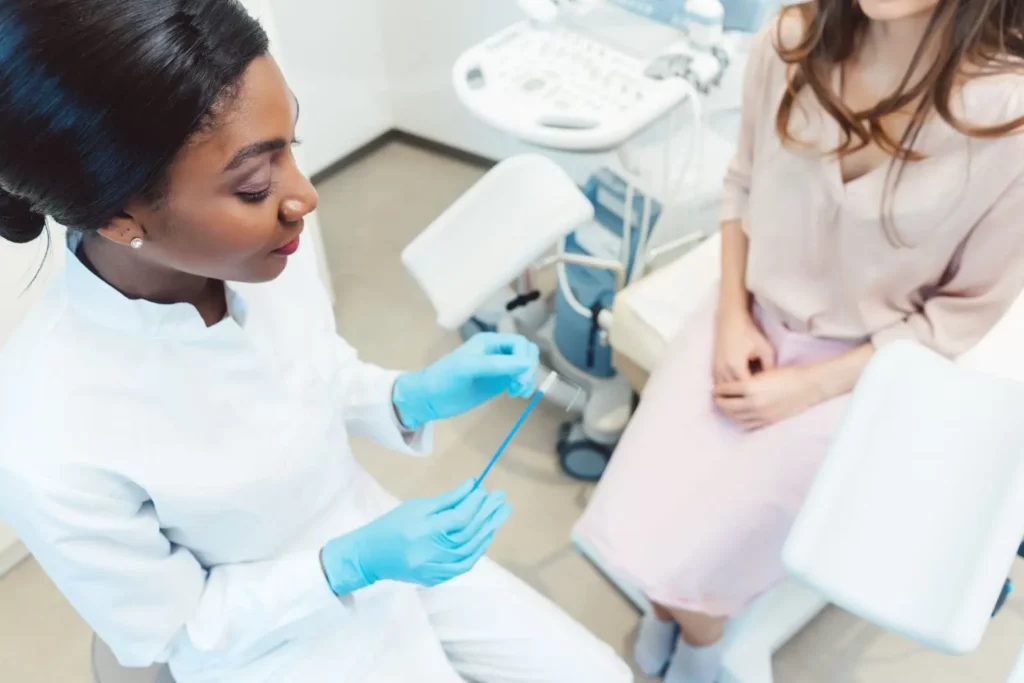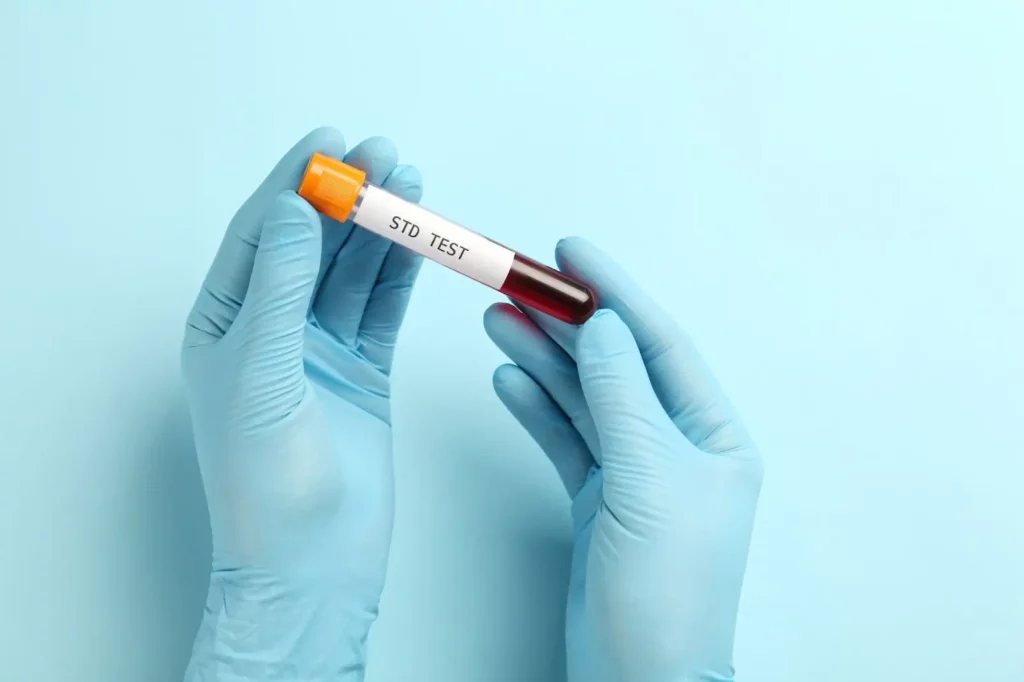Sexually transmitted diseases (STDs) are a significant public health concern, and timely diagnosis is critical for effective treatment and preventing further spread. When it comes to getting tested for STDs, many questions come to mind such as how long do STI checks take, or how soon can you get STD results, or how long are results for STD tests? Various factors can influence this timeframe, including the type of test, testing methods employed, lab processing time, the specific STD being tested for, and the healthcare facility’s efficiency. This article delves into these factors and provides a clear understanding of what to expect when waiting for STD test results.
What Factors Affect the Time It Takes for STD Test Results?
The type of STD test you undergo greatly influences the waiting period for results.
Type of STD Test
Different STDs require varying testing techniques. Common tests include blood tests, urine tests, swabs, and visual examinations. For instance, HIV and syphilis are typically diagnosed through blood tests, while gonorrhea and chlamydia can be tested using urine samples or swabs. Each type of test has its own processing timeline.
Testing Method
Testing methods, such as rapid tests or standard laboratory tests, also play a crucial role. Rapid tests can provide results within minutes to a few hours. These are beneficial for diseases like HIV and some bacterial infections, where prompt diagnosis is essential. Standard laboratory tests, on the other hand, might take longer as they require more detailed analysis in lab settings.
Lab Processing Time
Lab processing time is a significant determinant of how long do STD tests take. Once samples are collected, they need to be processed and analyzed, which can take anywhere from a few hours to a couple of days. Specialized labs dedicated to processing such tests may speed up the process, while general labs with high volumes of tests might take longer.
Type of STD Being Tested
Different STDs have different testing timeframes. For example, testing for HIV and syphilis through blood tests can take a few days to a week. Conversely, gonorrhea and chlamydia urine tests might yield results within 1-2 days. Understanding the specific timeframe for the STD you’re being tested for can help set realistic expectations.
Healthcare Facility
The healthcare facility where you get tested can impact the time it takes to receive your results. Clinics and hospitals with in-house labs may provide quicker results compared to facilities that send samples to external labs. Additionally, the efficiency and workload of the healthcare facility can also be a determining factor in the waiting period.
How Long Does It Take to Get Results from a Blood Test for STDs?
Blood tests for STDs, such as those for HIV, syphilis, and herpes, typically take between a few days to a week for results. The blood sample is analyzed for specific antibodies or antigens related to the infection, which requires thorough examination. Hence, while the waiting period might seem long, the precision of blood tests justifies the time required for processing.

How Long Does It Take to Get Results from a Urine Test for STDs?
Urine tests for STDs, primarily used to detect infections like gonorrhea and chlamydia, usually provide results within 1-3 days. These tests are less invasive and quicker to process compared to blood tests. Most modern labs can analyze urine samples rapidly, making it a convenient method for testing common STDs.
Do Different STDs Have Different Testing Timeframes?
Yes, different STDs do have varying testing timeframes. For example, results for common bacterial STDs like gonorrhea and chlamydia from a urine test may be available within 1-2 days, whereas viral infections like HIV can take several days to a week if tested via blood samples. Understanding these timeframes can help manage expectations and reduce anxiety while waiting for results.
How Long Do Results for Rapid STD Tests Take?
Rapid STD tests offer near-instant results, typically within 30 minutes to a few hours. These tests are valuable for conditions where quick treatment is essential, such as HIV. Rapid tests can be performed on various specimens, including blood, oral fluids, or other bodily materials. While rapid, these tests are largely accurate, though confirmatory testing may sometimes be recommended.
Understanding the factors that affect the time it takes for STD test results and the specific timeframes for various testing methods can help alleviate concerns and ensure that individuals are well-informed. Always consult your healthcare provider to get the most accurate information regarding your specific situation.
Why Does It Take Longer for Some STD Tests to Deliver Results?
The length of time needed to deliver results for some STD tests can be attributed to several factors. More complex testing technologies, such as nucleic acid amplification tests (NAATs) for viruses like HIV, require longer processing times due to the detailed analysis involved. In addition, higher volumes of tests may delay results. In labs experiencing high demand for those searching “STD test near me” or “same day std testing near me” and such as those in areas with high STD rates like Houston, delays are more likely.
Can You Get Same-Day Results for STD Tests?
Yes, same-day results are possible for certain STD tests, particularly rapid tests. Rapid STD tests, including those for HIV and certain bacterial infections, can yield results within an hour. However, the availability of same-day testing depends on the healthcare facility. For instance, Aether Health’s emergency room in Pearland, TX, offers expedited testing services that prioritize quick results for urgent needs.

What Should You Do While Waiting for STD Test Results?
Waiting for STD test results can be stressful, but there are steps you can take to manage this period effectively. Avoid sexual contact to prevent potential transmission of infection while waiting for results. Stay informed about the testing process and follow any advice given by your healthcare provider. Seek support if needed, and maintain a healthy routine to mitigate anxiety.
When Should You Follow Up After Receiving Your STD Test Results?
Following up after receiving your STD test results is crucial, regardless of the outcome. If your results are positive, seek prompt treatment and inform your partners to prevent further transmission. Even if results are negative, consider regular testing if you are sexually active. Frequent follow-ups ensure proactive health management and aid in early detection.
Understanding and Managing Your STD Testing Journey
Knowing what to expect from the STD testing process helps in managing anxiety and prepares you for the next steps, whatever the outcome. With resources like Aether Health, you can access expedited services and timely support. Remember, timely diagnosis and treatment are key to maintaining your sexual health and well-being.
Understanding the factors that affect the time it takes for STD test results and the specific timeframes for various testing methods can help alleviate concerns and ensure that individuals are well-informed. Always consult your healthcare provider to get the most accurate information regarding your specific situation.



